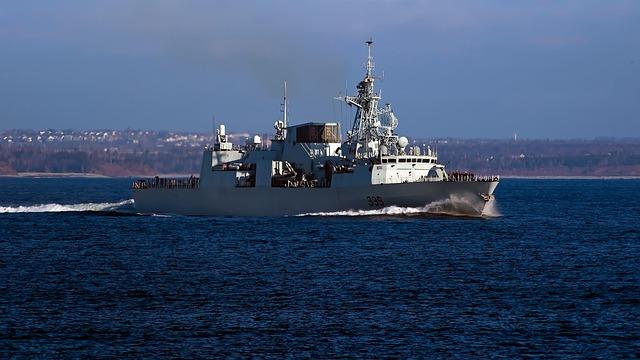The Royal Navy intercepted two Russian naval vessels navigating through the English Channel earlier this week, marking a significant moment in the ongoing maritime security dynamics of the region. According to BBC reports, the operation involved close monitoring and escorting of the ships as they passed through British waters, underscoring the vigilant stance of the UK armed forces amid heightened geopolitical tensions. This incident highlights the strategic importance of the English Channel, a critical maritime corridor, and the continued efforts to safeguard national sovereignty and maintain regional stability.
Royal Navy Response Highlights Rising Tensions in the English Channel
The Royal Navy’s recent interception of two Russian naval vessels navigating the English Channel underscores the escalating strategic competition in one of Europe’s most sensitive maritime corridors. According to defense sources, the ships were closely monitored from departure to exit, with Royal Navy frigates escorting them at a safe distance, signaling a clear message of vigilance and readiness. This operation took place amid growing concerns over Russian naval activities near NATO waters, prompting heightened alert levels across allied maritime forces.
Key factors contributing to the heightened tensions include:
- Increased frequency of foreign naval movements in UK and allied territorial waters
- Enhanced surveillance and response protocols implemented by the Royal Navy
- Strategic implications of controlling important maritime routes in the English Channel
| Vessel | Type | Duration in Channel (hrs) |
|---|---|---|
| Viktor Leonov | Intelligence Ship | 6 |
| Yury Ivanov | Reconnaissance Vessel | 5 |
Detailed Analysis of Russian Naval Movements and Strategic Implications
Recommendations for Strengthening Maritime Security and International Cooperation
The recent interception highlights the imperative need for enhanced coordination among maritime forces to promptly address unauthorized vessel movements within key international waterways. Strengthening maritime security requires not only the enhancement of surveillance technologies but also clearly defined protocols that facilitate swift, bilateral or multilateral responses to potential threats.
International cooperation can be bolstered through:
- Joint Maritime Exercises: Regular drills that improve communication and operational readiness between allied navies.
- Real-Time Intelligence Sharing: Establishing secure channels for exchanging data on suspicious activities to preempt security breaches.
- Standardized Rules of Engagement: Developing universally accepted guidelines to manage interceptions and avoid unintended escalations.
- Investment in Monitoring Technology: Utilizing satellite, radar, and drone assets to maintain comprehensive surveillance of strategic waterways.
| Key Area | Recommended Action | Expected Outcome |
|---|---|---|
| Surveillance | Upgrade satellite and radar systems | Improved vessel detection and tracking |
| Communication | Implement secure real-time data links | Faster response times and coordinated actions |
| Legal Framework | Harmonize maritime laws | Reduced legal ambiguity during interceptions |
To Conclude
The Royal Navy’s interception of two Russian vessels in the English Channel underscores ongoing tensions in the region and highlights the importance of maintaining vigilant maritime security. As geopolitical dynamics continue to evolve, the UK remains committed to safeguarding its waters and upholding international law. Further updates are expected as authorities continue to monitor the situation.




